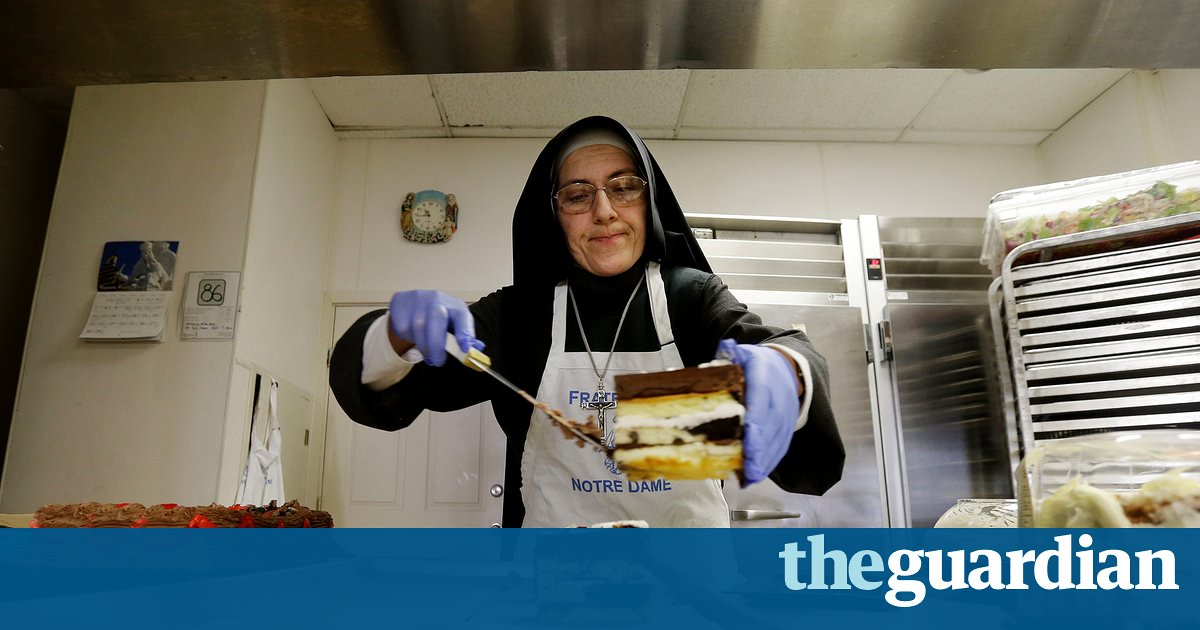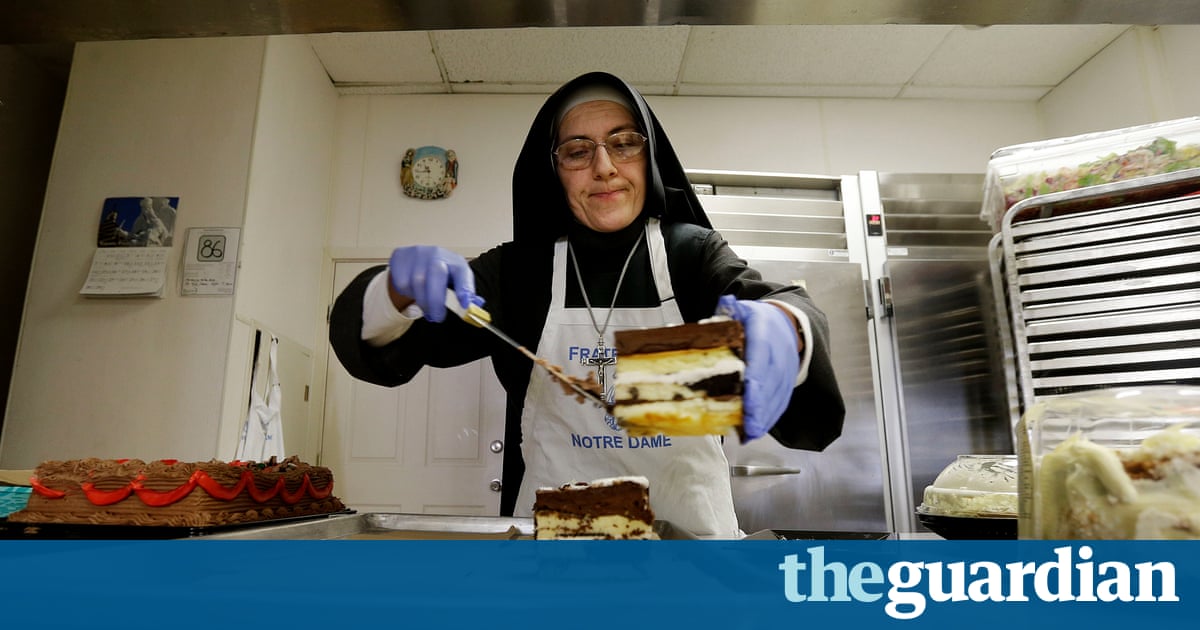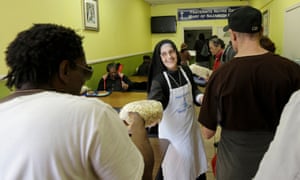Soup kitchen puts San Francisco nuns on front lines of city’s housing crisis

Seemingly saved from eviction over a rent hike by a donation from Tony Robbins, the nuns of the Fraternite Notre Dame now face an all-too-familiar challenge in the search for a permanent home in the city

For the nuns of the Fraternite Notre Dame, it began as a familiar San Francisco story: the soup kitchen they ran in the city was hit with an impossible rent hike.
Then came a providential twist in the guise of Tony Robbins, the entrepreneur and life success coach who heard of their troubles and offered to buy them a permanent base across town.
I really think God sent him like an angel to help us, said Sister Mary Benedicte. Hes like the hand of God to help us help the poor people.
At present, however, there is a snag. The handsome Mission District building the nuns would like to move into is home to 15 residential units. In a recent letter to the citys planning department, lawyers for the homeowners association said that feeding the homeless is a wonderful thing to do but theirs is not the appropriate location.
While the sisters describe their project as part of a heavenly plan, their prospective neighborhood is the scene of bitter conflict over who possesses the rights to particular patches of earth. The Mission is the poster child for gentrification in San Francisco, with median one-bedroom rents approaching $3,500 and scattered tent encampments housing those who cannot rise to them.
A temporary shelter complex is immediately adjacent to the apartment building. On the sidewalk outside, men and women sit in folding chairs or stroll back and forth, their belongings heaped next to them or in shopping carts.
God bless them, a man named Gary Baker, 60, said of the nuns. And obviously he has.
A resident of the building who came down to open the door, Edric Dave, 26, said he believed in charity work, and volunteers for several hours a month at a local church.
But he has a hard time with people sitting here, right here, dealing crack, dealing drugs, he said, gesturing at the stoop. I know theyre helping the poor and homeless. Im also doing the same thing, but at the same time, this is my space.
He is not the only who lays claim to it. This is like my block to a certain extent because I spent a lot of time here, said a woman named Hawk, 37, noodling about under the palm trees. Im no one, a nomad, a wanderer, a vagabond, residentially challenged.
The homeowners will not find an ally in their newly elected supervisor, Hillary Ronen, who said in an interview that they should think about more than their property values. Still, a lawyer for the homeowners association, Jeffrey Belote, said this concern was not driving the opposition.
In the letter to the planning department, he laid out a number of concerns, including that it would lead to lines of people outside affecting street-level businesses, eliminate retail space, and that similar services already existed in the area. It will hamper and deter future development, he wrote. A member of the sisters advocacy team said they would present their response to these points at a planning commission hearing.
Robbins publicist said he had donated over $1m. He was unavailable to comment.

The sisters, who did not want to provide their ages, have worked in San Francisco for three to four years. Their order has its roots in some woods near the southern French village of Frchou, where in 1977 the Virgin Mary was said to have appeared to the organizations founder and filled him with divine inspiration.
Bishop Jean Marie has such great love it makes us want to follow him, said Sister Mary Benedicte, a Breton who studied medicine before taking orders.
Hes like Jesus, added her colleague, Sister Mary of the Angels, who is from Port-au-Prince, Haiti. She first encountered Jean Marie when he visited a mission in her homeland.
On a recent evening, the pair drove in a dented SUV to an unprepossessing industrial area in the south-eastern part of town. It was chilly and rainy, and the nuns wore jackets over their habits, with crucifixes peeking out. Odors from a nearby sewage treatment plant wafted through the air.
Along a quiet street, a woman named Melodie emerged from the RV she lived in and almost knocked the sisters over with a hug. They opened the trunk of the car, which was packed to the roof with packaged food and meals of sausage, rice and broccoli that they had cooked.
Would you like cinnamon bun cookies? said Sister Mary of the Angels, scrutinizing a package.
Sister Mary Benedicte told Melodie, draped in a dripping poncho, about their planning problems. Some people in Mission, they dont want a soup kitchen, dont want poor people.
Later, Sister Mary Benedicte clambered up a soggy railway embankment in search of people to help. She gingerly petted the snakes that two women kept under their clothes for the reptiles warmth. Although she does not know where they will go if the Mission deal falls through, she does not think events are entirely within her control.
God found that place, she said. He wants us to be there.
Read more: https://www.theguardian.com/us-news/2016/dec/11/san-francisco-fraternite-notre-dame-soup-kitchen